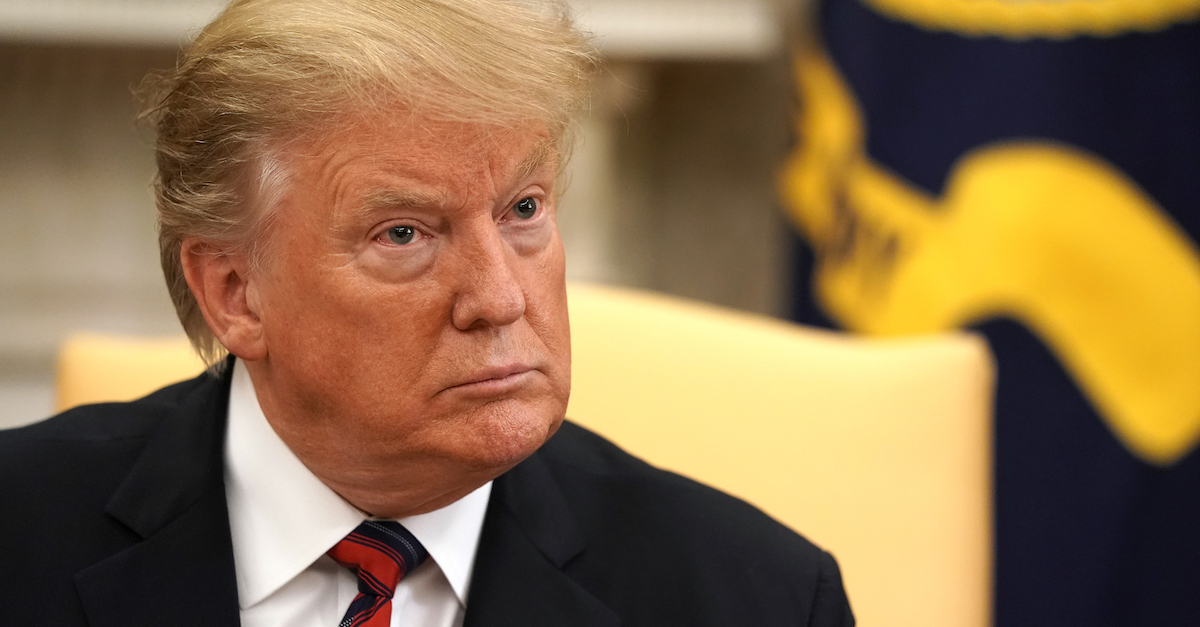
As the early stages of the impeachment inquiry into President Donald Trump appear focused on whether the administration improperly applied pressure on the Ukrainian government to launch an investigation into the Biden family, one former federal prosecutor believes that “a more straightforward legal case” against the White House has emerged.
Gary Stein, the former chief appellate attorney in the Southern District of New York, on Tuesday wrote in the Washington Post that members of the Trump administration, including the president himself, have likely violated “criminal prohibitions on the use of executive branch powers for partisan ends,” which are enshrined in the recondite criminal provisions of the otherwise familiar Hatch Act.
The Hatch Act’s well-known civil prohibition on federal employees using their office to participate in political activity has proven toothless against the Trump administration, particularly in the case of White House counselor Kellyanne Conway. But Stein notes that the Hatch Act also contains a criminal component, making it a crime for any person in office to use their authority “to coerce any person to participate in political activity.” Such activity entails any actions aimed at affecting the success or failure of candidate for political office, “which, of course, would include activity directed toward the success of Trump’s reelection campaign or the failure of Biden’s presidential campaign,” according to Stein.
And, while the civil restrictions of the Hatch Act don’t apply to the president and vice president, the same is not true for the criminal prohibitions. Stein specifically points to 18 USC § 610, applicable to all members of the executive branch, including the president, which makes it a felony for “any person to intimidate, threaten, command, or coerce, or attempt to intimidate, threaten, command, or coerce, any employee of the Federal Government […] to engage in […] any political activity.”
Stein explains that, regardless of proving a “quid pro quo” or receipt of a “thing of value,” the law prevents the federal government from being hijacked in pursuit of a president’s “purely partisan political objectives as a candidate for office.”
“If Trump commanded, or coerced or intimidated, State Department officials or other federal employees to engage in impermissible political activity — or attempted to do so — that itself would be a criminal violation of the Hatch Act. (This would also be true of other top officials who recruited government employees for the effort),” he wrote.
Looking at the testimony of top U.S. diplomat to Ukraine William Taylor, Stein said it’s “clear” that State Department officials and other government employees “were enlisted to persuade Ukraine” to investigate the Bidens with the apparent goal of aiding Trump’s campaign for reelection.
“An enterprise of that sort emanating from the Trump White House, if proved, would be the very kind of activity the Hatch Act was designed to prevent,” he concluded.
[image via Chip Somodevilla/Getty Images]